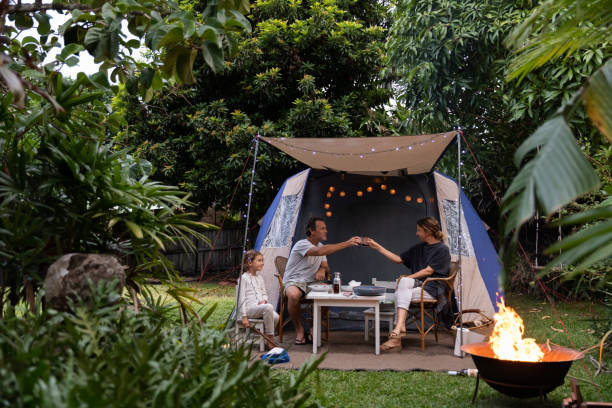First things first, choosing your cover material for your canopy tent is not a cookie cutter thing. You need to consider factors like fire-resistance, UV protection, water resistance, and durability in order to ensure that you get the cover for your tent. Manufacturers use the term for providing an outline of the fabric’s density.
Concisely, the thumb rule says that if the denier is higher, the fabric will be tougher. When it comes to your canopy cover materials, the three main options are vinyl, polyethylene, and polyester.
- Vinyl canopy tops are predominantly polyester fabric with premium vinyl coating. This coating makes the tent top waterproof, flame-retardant, and UV resistant. Vinyl tops are quite heavy. That’s the only downside of a vinyl canopy cover.
- The polyester tops are the most common ones for instant canopies because they are water-resistant and durable. Don’t forget to check the fabric denier. This material isn’t water-proof, but water-resistant, which means it can thwart water for a certain amount of time. However, water and moisture will eventually seep in.
An assortment of fabrics
Considering the opulence of marquee fabrics and frames in the market today, it’ll be safe to assume that your outdoor canopy tentfabric is no longer limited to canvas. However, purchasing the right canopy fabric depends on your requisites.
- Polyester marquees with PVC coating are a standard majority of marquees and tents. Nearly 85% customers buy PVC polyester. It’s their favorite canopy material due to its economical, lightweight, and low-maintenance aspects.
- This canopy tent has a polyvinyl chloride coating, making it resistive to harsh weather and waterproof.
- People prefer PVC-coated canopies because they are cheaper. When you compare them with cotton canvasses, the artificial fabrics in PVC tents are more cost-effective.
- You may look for a compact backpacking canopy or a portable and strong pop-up. The polyester tents with PVC coating are less bulky and lighter than the cotton canopies.
- You can easily carry them to the trade show site. They are weatherproof, which means in the event of rains, you can dry them quickly.
- These canopies offer stronger resistance against mould, mildew, and rips. They also come in a range of finishes. Easy cleaning and maintenance make them more viable.
Into awning fabrics
You can buy awning fabric for your canopy tent by considering a few factors, such water-resistance, sun and UV protection, ease of care, mildew and mold resistance, and ease of care serebii dracovish.
- Awnings have a perpetual exposure to outdoor elements, which makes them more susceptible to the damaging effects of the sun. With the meticulous selection, awning fabrics play a pivotal role to reduce the sun’s downsides.
- The fabrics minimize glare, provide UV protection, control heat, and help minimize energy costs by preventing the glaring sunlight from entering your room.
- If the fabric is opaquer, it will be more effective in blocking UV rays. This is where synthetic and woven fabrics like vinyl or acrylic outclass cotton.
The most common awning material is acrylic due to its matchless durability. Water-repellant, fade-resistant, and breathable, they provide superb dimensional stability.



